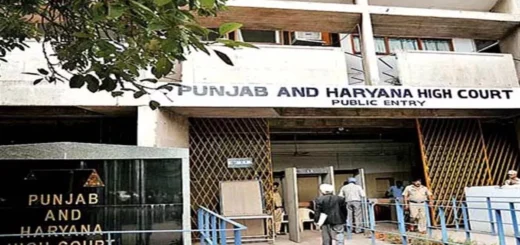The Supreme Court has granted anticipatory bail to actor Siddique after years of delays and allegations made by the complainant against several individuals.

The Supreme Court has granted anticipatory bail to Malayalam actor Siddique in a case involving rape and criminal intimidation. The court noted that the complaint was made eight years after the alleged incident, and the complainant had previously accused multiple individuals of sexual harassment in a social media post. On September 30, the Supreme Court ordered that if Siddique were to be arrested, he would be released on bail, provided he complied with the Trial Court’s conditions and participated in the investigation when required. This order was extended on October 22 and November 12, making Siddique’s anticipatory bail permanent today. During the hearing, Senior Advocate Mukul Rohatgi, representing Siddique, pointed out that the complainant had made accusations against many people, not just his client, and questioned the timing of the complaint.
A two-Judge Bench, consisting of Justice Bela M. Trivedi and Justice Satish Chandra Sharma, acknowledged the sensitivity of the case and stated that the complaint was filed nearly eight years after the alleged incident in 2016. They also noted that the complainant had made allegations against about 14 individuals on Facebook in 2018 and had not approached the Hema Committee. The Court was reviewing a Special Leave Petition challenging the Kerala High Court’s decision to dismiss Siddique’s bail application on September 24, following a complaint filed in August after the release of the Justice Hema Committee report.
Rohatgi responded to the earlier claim that Siddique had deactivated his Facebook account after the First Information Report was filed, stating, “I don’t have a Facebook account anymore,” on behalf of the actor. Justice Trivedi quickly replied, “That doesn’t mean you will be spared.” Rohatgi then pointed out that in a 2018 Facebook post, the complainant had named 14 individuals she accused of various forms of abuse, including Siddique, who is an actor, photographer, and director. Justice Trivedi questioned why she could post complaints on Facebook but not go to the police, a point Rohatgi agreed with. He explained that Siddique’s position is that the complainant attended a preview of his film in Thiruvananthapuram in 2016 with her parents, stating, “I had never met her before or after that. Her claim is that I invited her to a hotel. If you come with your parents, would you just leave with someone in a car to go to a hotel? You are also a public figure; you would stay silent?”
Rohatgi mentioned that Siddique is the general secretary of the Association of Malayalam Movie Artists, while the complainant is part of the Women in Cinema Collective, indicating some “friction” between the two groups. Senior Advocate Ranjit Kumar, representing the State of Kerala, addressed Justice Trivedi’s inquiry about the complainant’s social media posts versus her lack of an official complaint. He noted that many victims only find the courage to report incidents after the Justice Hema Committee Report. He also mentioned that witness statements are being recorded, confirming the proximity of the victim and the accused, with 22 witnesses already examined and more to come.
Ranjit Kumar restated the State’s position that Siddique was not cooperating with the investigation and stressed the need for custodial questioning. “He questions the relevance of these inquiries,” Ranjit Kumar mentioned. During the hearing on October 22, he told the Court, “I am concerned that he is not cooperating. He comes with a prepared statement, presents it, and says he doesn’t want to answer anything further. He claims he can’t remember anything.” Justice Trivedi inquired of Advocate Vrinda Grover, representing the complainant, whether the complainant was still active in the film industry. Grover responded that the complainant was receiving “very little work” due to her speaking out.
Vrinda Grover argued that this is not a situation where an actress “voluntarily approached a superstar. He admires her photos. He reaches out to her. She is significantly younger than him. This is how grooming occurs, with a young actress being told, ‘I like your photos,’ and ‘You have a chance in the film industry.'” She explained that the complainant’s account is that Siddique invited her to a movie preview, after which he said, “‘I need to discuss something about the film industry with you,’ and took her to the Mascot hotel. This is a case of rape that happened in the hotel. This issue goes beyond reputations; it addresses the widespread sexual assault and abuse occurring.” In response to Justice Trivedi’s question about the delay in filing the complaint, Grover stated that the complainant had tried to speak about the incident but faced backlash on social media, “orchestrated by him and his followers. It was only after the Hema Committee report and the Kerala High Court’s attention to the matter that women began to come forward. He [Siddique] told her that nobody would believe her and that she could do nothing against him. That is why she remained silent.”
Cause Title: Siddique v. State of Kerala And Anr. [SLP(Crl) 13463/2024]









